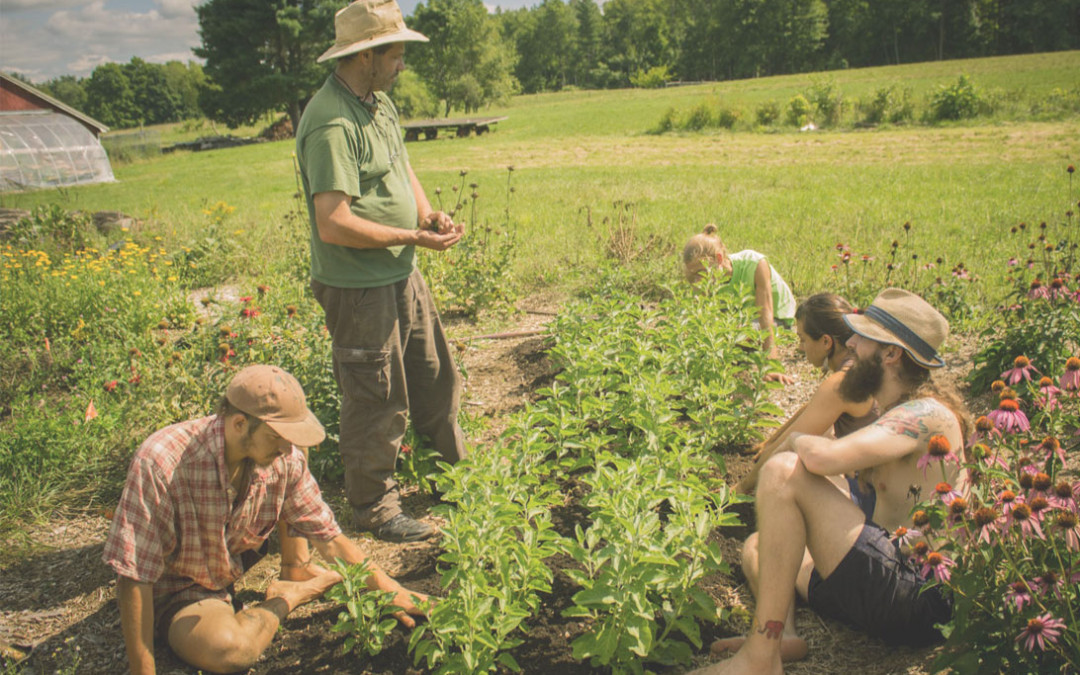I sat down with Chris Marano, Registered Herbalist with the American Herbalist Guild, and asked why he developed an herbalist course online. Here’s what was shared
I’ve been teaching herbalism for over 25 years and it’s always been in-person classes to people at my Clearpath School of Herbal Medicine, or people inviting me to come teach at conferences or at their schools.
Now, computer technology is readily available and user friendly. People have been asking me for many years if I could have an herbalist course online because they live too far away to take my classes. They visit my website and read about my approach to herbalism and human health, and it speaks to them. Other people live in areas where there’s just nobody available to teach herbalism.
I decided recently to start translating my first-level herbal program from the in-person format into an herbalist course online. Some of these classes involve foundational information for understanding human health – including both Western Foundations of Herbal Medicine and Chinese Foundations of Herbal Medicine – and some of these classes are Materia Medica classes that specifically provide in-depth information on herbs.
I also plan on bringing a few preparations classes online as well as anything that can be recorded easily and makes sense to share in this format.
Quality is important to an herbalist course online
There is an incredible amount of variety in herbalism and there’s not a whole lot of standardization, which I’m not in or out of favor with. What I have seen, though, is a certain level of mediocrity that has started to arise. Herbalism has become popular, trendy, and a lot of what is now out there is watered down. Without having a set standard, it’s easy to attach the word “herbalist” after your name without having much experience or education compared to somebody who does and who has put in the time and study. It is important for people in search of a good school or program to do their homework.
Those of us who have been working with herbalism for a long time feel a great need to put out quality herbal programs and information that holds true so that we can have integrity and not dishonor this world-wide, millennia-old field of health. We want to be seen with respect, trusted for what we know and do. Herbalism can still be very diverse with its many approaches from around the world while maintaining high quality and integrity.
And personally, I want to put out as excellent a product as possible. Our school is viewed with high respect for the breadth and depth that we go into in the practice of herbalism.
Learn about this new herbalist course online: Getting into the information that makes up Foundations of Western Herbalism, part 1
The modules and sections of this herbalist course online entitled Foundations of Western Herbalism, part 1 lays out the groundwork for how to use medicinal herbs to help human beings who want to maintain, improve or correct their health. Herbalism is the place where people and plants interact. This course speaks in depth to both people and plants, with the greater emphasis placed on understanding human health and imbalance.
Foundations of Western Herbalism, part 1 explores the place where herbs and people meet and interact. This class peers through the lens of Western traditional healing systems, originating in greco-roman era Europe and evolving over the centuries. From there, coming across the Atlantic to North America and assimilating the knowledge of the Materia Medica of many native plants, as well as the philosophy and principles of healing from First Nations traditions I have studied with, including Cherokee and Anishinaabe-Ojibwe. This course focuses on understanding people from a health point of view so that we know how to approach, help and give suggestions to help them feel better. Understanding health and balance as well as imbalance and illness through this Western lens, with a focus on energetics (hot, cold, damp, dry) in people and plants, temperaments and tissue states in people, and learning pattern-recognition skills. This information is laid out in a series of audios, videos and PDF files within Foundations of Western Herbalism, part 1.
In regards to the medicinal plants – as well as food – we learn about how to use and understand them from several angles, including flavor and energetics as well as medicinal herb categories, such as tonics, alteratives, adaptogens, etc.
This is the main subject matter of this herbalist course online Foundations of Western Herbalism, part 1 from a content standpoint.
Finally, I have great respect for the spiritual underpinnings that come with these healing traditions, and I do not ignore them. They did not separate matters of spirituality from medicine. I strongly feel that if we ignore these spiritual underpinnings we are disrespecting the core and foundational principles of these healing traditions. I spend a good deal of time in this course exploring and explaining these foundations, starting from the basics of how these traditions view reality and constructing a viable and comprehensive understanding of human health from there. I don’t want to teach something that’s fundamentally hollow at its core. It’s important to honor these traditions by taking the time to understand them on their terms, in their context, and not just interpreting them by what we are hardwired with and translating them into something we already know.

